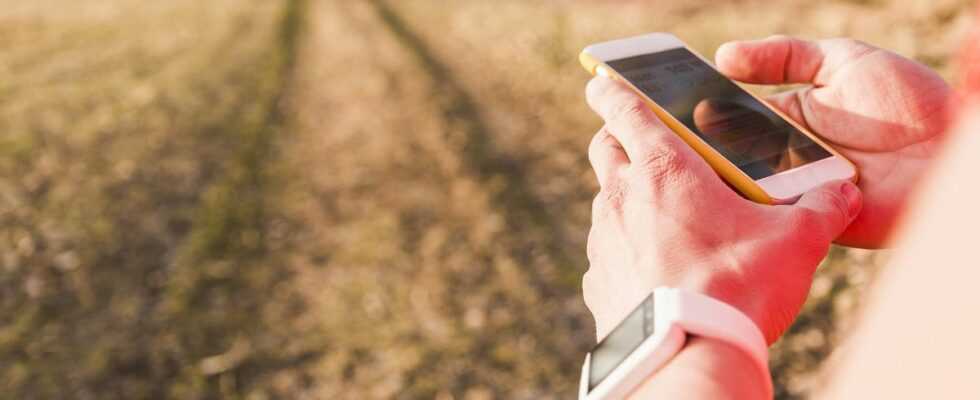Nearly ten years after the launch of 4G, high-quality broadband still remains unrealistic for many consumers.” This observation is made by the UFC-Que Choisir, which calls on operators to ensure a minimum quality of service.
The consumer association UFC-Que Choisir has published the results of a study conducted by users of mobile networks using the QuelDébit application (available on Android and iOS) and denounces a “unacceptable digital divide” in France. A fracture that “hitting rural areas hard and gaining strength with the development of 5G”. In this context, the association invites the public authorities to take up the problem and force operators to offer real broadband in all regions officially covered by 4G and 5G.
32% of tests in rural areas below 8 Mb/s
Developed by UFC-Que Choisir, the QuelDébit application offers consumers the possibility of testing the actual speeds they enjoy in the field, when connected to a 4G or 5G antenna. With each test launched, the speeds obtained make it possible to quantify the quality of their connection on a scale of 1 to 10. For the time being, the number of tests available to UFC-Que Choisir is less than those on which the barometers of an institute like nPerf, for example, but the association hopes to grow its user base, which currently numbers some 50,000 people.
According to the results compiled by UFC-Que Choisir, far from all consumers benefit from “mirific flows” touted by operators’ marketing campaigns. 95% of the data collected concern 4G connections and they highlight very strong territorial inequalities: in urban areas, average speeds amount to more than 55 Mb/s, compared to only 33 Mb/s in rural areas. In the field, 14.3% of 4G speeds recorded are in fact less than 3 Mb/s, a speed considered to be minimal for decent browsing on the Internet and accessing basic services. The “good speed” of 8 Mb/s is not reached in 25% of cases at the national level, and in 32% of cases in rural areas.
5G aggravates the divide
For the moment, UFC-Que Choisir does not yet have enough data to see if 5G has anything to improve things. Nevertheless, on the test samples available to it, the association observes that this new technology does not reduce the digital divide but, on the contrary, worsens it, by dramatically accelerating speeds where they were already excellent without bringing solutions in areas with poor mobile connection. “Never has the digital divide of the mobile Internet been so pronounced”, concludes the organization which regrets this situation almost ten years after the launch of 4G in France.
This was, according to the government, the whole purpose of the New Deal Mobile signed in January 2018 and according to which the operators undertook to invest both in new 5G infrastructures and in the coverage of white areas, with the ambition to significantly reduce the mobile divide by 2022. We are there and, obviously, there is still work to be done.
